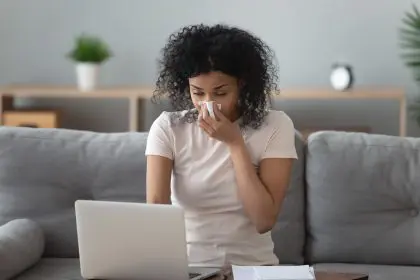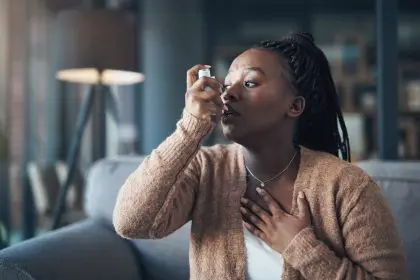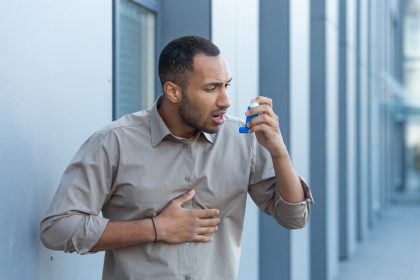Picture this, you’re house hunting, scrolling through listings, checking out school ratings and crime stats. But here’s what your real estate app won’t tell you, some addresses come with a hidden subscription to worse lung health. It’s like a twisted lottery where your zip code determines whether you get to breathe easy or spend your life fighting for every breath.
The air around us isn’t playing fair. While some folks get to fill their lungs with relatively clean oxygen, others are basically breathing through a dirty sock every single day. This isn’t just about feeling a little winded after climbing stairs, we’re talking about a rigged system that’s literally taking years off people’s lives.
The neighborhood lottery game
Your address isn’t just where you sleep at night, it’s your respiratory destiny. Some neighborhoods sit pretty with tree-lined streets and gentle breezes, while others are sandwiched between highways, factories, and busy ports. It’s like some areas won the clean air jackpot while others got stuck with the pollution consolation prize.
The cruel irony is that the communities dealing with the worst air quality are often the ones with the least power to change it. Lower-income neighborhoods frequently end up hosting the industrial facilities, major roadways, and waste processing plants that everyone needs but nobody wants in their backyard.
The daily dose difference
Here’s where it gets really unfair: if you live near a major highway, you’re breathing in about twice as much harmful pollution as someone just a few miles away in a leafy suburb. It’s like some people are getting a double shot of espresso while others are sipping herbal tea, except instead of caffeine, we’re talking about particles that make your lungs work overtime.
Who gets the worst air
The neighborhoods bearing the brunt of dirty air aren’t random. They’re often home to people who already face other health challenges, communities with limited access to healthcare, healthy food, and safe spaces for exercise. It’s like life decided to pile on the challenges all at once.
Urban areas with dense traffic, industrial zones, and older housing stock typically see the highest levels of harmful particles floating around. These tiny invaders are so small you can’t see them, but your lungs definitely feel their presence over time.
The generational impact
What makes this even more heartbreaking is that kids growing up in these areas are essentially training their developing lungs to function in a hostile environment. Their respiratory systems are adapting to dirty air as normal, which sets them up for a lifetime of breathing difficulties.
Your lungs are keeping score
Your lungs are basically scorekeepers in this unfair game, tallying up every polluted breath you take. They’re remarkably good at their job, filtering, cleaning, and protecting you from the worst of what’s floating around. Even the best air filtration system eventually shows wear and tear when it’s constantly overworked.
Those tiny particles in polluted air are like uninvited guests at a party – they slip past your body’s security system and make themselves at home in places they shouldn’t be. Once they’re in your lungs, they can trigger inflammation, making it harder for you to breathe and increasing your risk of developing chronic respiratory problems.
The ripple effect on your whole body
What starts in your lungs doesn’t stay in your lungs. Poor air quality can mess with your cardiovascular system, making your heart work harder to pump oxygen-poor blood around your body. It’s like forcing your car to run on low-grade fuel, everything just works a little less efficiently.
The invisible daily damage
Your daily commute might be doing more than just stressing you out – it could be giving your lungs a workout they didn’t ask for. Rush-hour traffic creates pollution hotspots that turn your car into a mobile gas chamber. Even with windows up and air conditioning on, you’re still breathing in more harmful particles than someone working from their home office.
Indoor air isn’t always the escape
Think you’re safe indoors? Not necessarily. Outdoor pollution has a sneaky way of making itself at home inside buildings, especially older ones without proper ventilation systems. Plus, indoor air often comes with its own set of problems – cleaning products, cooking fumes, and that musty smell from the basement all add to your lungs’ daily workload.
Fighting back against bad air
The good news is you’re not completely powerless in this situation. Simple changes to your daily routine can help reduce your exposure to harmful air pollution. Timing your outdoor activities for early morning or late evening when traffic is lighter can cut down on the junk you’re breathing in.
Indoor air improvement tactics
Your home can become your respiratory sanctuary with a few smart moves. Air purifiers aren’t just expensive gadgets, they’re like bouncers for your living space, keeping the worst pollutants out of your personal air supply. Plants aren’t just pretty decoration either, they’re working around the clock to clean your indoor air naturally.
Small changes that actually work
Creating cleaner air around you doesn’t require moving to a mountain cabin. Strategic use of air purifiers, keeping windows closed during high-pollution times, and choosing walking routes away from busy roads can all help your lungs catch a break.
The key is understanding that while you can’t control the air quality in your entire neighborhood, you can influence the air you breathe most of the time. It’s about creating pockets of cleaner air in your daily life, your bedroom, your car, your workplace, wherever you spend significant time.
Community action makes a difference
Individual actions help, but real change happens when communities come together to demand cleaner air for everyone. Supporting policies that limit industrial emissions, improve public transportation, and create more green spaces in urban areas benefits everyone’s lungs, not just your own.
The fight for fair air isn’t just about personal health, it’s about making sure everyone gets an equal shot at breathing easy, regardless of their zip code or bank account balance.

















